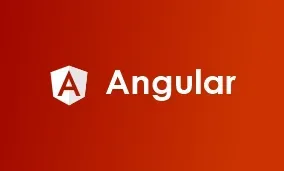
Angular JS
Course Overview of the Leading Angular JS Course in Bangalore
The Angular JS Course in Bangalore is designed to provide participants with a comprehensive understanding of Angular, a powerful front-end web application framework maintained by Google. Angular facilitates the development of dynamic, single-page applications (SPAs) with a focus on modularity, efficiency, and a seamless user experience. This course covers the key concepts, features, and best practices for building robust web applications using Angular.
1. Develop skills to create maintainable and scalable web applications. 2. Understand the ecosystem and tools surrounding Angular. 3. Learn best practices and design patterns commonly used in Angular development.
Learn software skills with real experts, either in live classes with videos or without videos, whichever suits you best.
Description
This course begins with an introduction to Angular and its architecture, covering components, directives, services, and modules. Participants will learn how to use Angular to create reactive user interfaces, handle data binding, and manage application state. The course also delves into advanced topics such as dependency injection, routing, and forms. Practical examples, hands-on projects, and real-world scenarios will be used to reinforce theoretical concepts.1. Gain practical experience with hands-on coding exercises. 2. Build real-world projects that reflect industry practices. 3. Explore Angular's integration with other front-end frameworks and libraries.
Course Objectives
The primary objectives of the Angular course are as follows:1. Introduction to Angular: Provide an overview of Angular, its history, and the advantages it offers for web application development. 2. Components and Templates: Explore Angular components and templates for building modular and reusable user interface elements. 3. Data Binding: Cover two-way data binding, property binding, and event binding to create dynamic and responsive user interfaces. 4. Directives: Introduce Angular directives for extending HTML and enhancing the functionality of user interface elements. 5. Services and Dependency Injection: Understand Angular services and the principles of dependency injection for managing application logic and state. 6. Modules: Explore Angular modules for organizing and structuring large-scale applications into manageable and modular components. 7. Routing: Introduce Angular routing for building SPAs with multiple views and navigating between them. 8. Forms: Cover Angular forms for capturing and validating user input in web applications. 9. HTTP Client: Discuss the integration of Angular with HTTP services for fetching and sending data to a server. 10. Testing and Debugging: Teach techniques for testing and debugging Angular applications to ensure reliability and maintainability. 11. Performance Optimization: Learn strategies for optimizing the performance of Angular applications. 12. Deployment: Cover best practices for deploying Angular applications in production environments.
Prerequisites
1. Basic understanding of HTML and CSS. 2. Familiarity with TypeScript programming language. 3. Knowledge of JavaScript and ES6 features. 4. Understanding of MVC (Model-View-Controller) architecture. 5. Awareness of front-end development concepts (e.g., components, services). 6. Experience with using and navigating the command line interface (CLI). 7. Prior exposure to any front-end framework (optional but beneficial).Who Can Learn This Course
This course is suitable for a diverse range of individuals, including:1. Front-End Developers: Professionals aiming to enhance their skills in front-end web development using Angular. 2. Web Developers: Individuals interested in building robust and interactive web applications with a focus on single-page applications. 3. Full Stack Developers: Those looking to incorporate Angular as a front-end framework in their full-stack development projects. 4. UI/UX Designers: Design professionals interested in understanding and integrating Angular for creating dynamic user interfaces. 5. Students and Graduates: Individuals pursuing degrees in computer science or related fields with an interest in modern web development. 6. System Architects: Professionals involved in designing and architecting systems where Angular is a key component. 7. Project Managers: Individuals overseeing web development projects who need to understand Angular's capabilities and limitations. 8. Anyone Interested in Angular: Enthusiasts curious about leveraging Angular for developing feature-rich and scalable web applications.
The Angular course is designed to cater to both beginners and individuals with some web development experience, providing a solid foundation in Angular concepts and practical skills for building modern web applications.
Course Curriclum
Training Features
Comprehensive Curriculum
Master web development with a full-stack curriculum covering front-end, back-end, databases, and more.
Hands-On Projects
Apply skills to real-world projects for practical experience and enhanced learning.
Expert Instructors
Learn from industry experts for insights and guidance in full-stack development.
Job Placement Assistance
Access job placement assistance for career support and employer connections.
Certification upon Completion
Receive a recognized certification validating your full-stack development skills.
24/7 Support
Access round-the-clock support for immediate assistance, ensuring a seamless learning journey.
Upcoming Batches
Placed Students
Enroll now and join our alumni.
Explore More Courses
Enroll for : Angular JS
Start Date: 2024-10-01
Mentor: Working Professional
Duration: 3 Months
